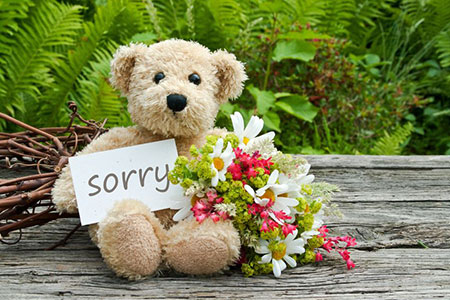grace
Life Invites You To Dance
 In the quietude of the morning, as the sun gently rises with a golden glow glistening through the trees, I feel a calm within reflecting the clear blue sky. The season is changing. The heavy heat and humidity of summer has dissolved into an idyllic balance of coolness, warmth, and lightness in the air.
In the quietude of the morning, as the sun gently rises with a golden glow glistening through the trees, I feel a calm within reflecting the clear blue sky. The season is changing. The heavy heat and humidity of summer has dissolved into an idyllic balance of coolness, warmth, and lightness in the air.
It is a time of transition, moving toward autumn, but not fully there yet. For me, it is a season of revitalization and renewed inspiration. The vastness of nature expands all around and the interconnectedness of every soul within it reaches the forefront of my awareness.
Today, I will be intuitively teaching a dancing with nature class at the World Peace Sanctuary nearby. All of life is a dance with nature and its Creator. We are invited into that partnership and party of life, to move together in joy and harmony.
But how do we join the flow? It begins at the feet, at the root of the tree of life. In Srimad-Bhagavatam, the great celestial sage Narada instructs, “As pouring water on the root of a tree energizes the trunk, branches, twigs and everything else, and as supplying food to the stomach enlivens the senses and limbs of the body, simply worshiping the Supreme Personality of Godhead through devotional service automatically satisfies the demigods, who are parts of that Supreme Personality.”
Not only are angels, nature spirits, and demigods part of the tree, but so are we. Like leaves upon it, we are connected not only with the twigs, branches, and trunk, but with the root, the very source and sustenance of all life. By watering that root with our whole-hearted attention and intention, we are nourished, supplied, and satisfied.
But what does this mean practically? It means peace and growth rest not in pursuit of individual desires, but in harmony with and service to Divine desires. Endeavoring to serve separate interests is futile and unfulfilling, just as watering the leaves and limbs of a tree individually would be. They would dry up and die if simply watered separately. Continue reading
Honor Yourself With Unconditional Love
 Dear loves, the message we bring to you today is about unconditional love. We want to help you know and understand more about this earthly concept of love, this love that you so desire and, indeed, richly deserve.
Dear loves, the message we bring to you today is about unconditional love. We want to help you know and understand more about this earthly concept of love, this love that you so desire and, indeed, richly deserve.
The first thing you need to know and accept about love is that love in action means freedom; freedom for you to be yourself, and freedom for the other person to be themselves. This is what true love really means. You must be able to allow that other soul to flourish, to fly, to be all that they can be.
Doing anything less than that is not love, it is entrapment. It is expectation. It is setting you up to be hurt and disappointed. We know that you are not used to this concept but some things are true, whether or not you believe them to be so.
Can anyone else be you? Can you be anybody else? The answer to both these questions is no. You were born into your body, which is your earthly vessel. Each body comes in different shapes and sizes, just as each soul inside that body has different needs and wants and dreams.
True unconditional love only comes once you accept yourself for who you are, in all your glory and your entire splendor. Another cannot honor you, if you are not honoring yourself. It may be what you have been taught throughout the years, but We are older than time itself and We tell you the way to achieve love is by setting yourself free to the Universe and the glories of that world.
Your Light, your own individual grace and purpose, can then start to glow, and the one whom is meant to enjoy that, the one whom speaks your language can then find you. For you have only just begun to live.
Seeing Yourself As You Truly Are
 The art of ‘being seen’ begins within. It is not in the eyes, or heart, of an external beholder. It is the grace of being able to see oneself through the Divine Eyes of our Creator.
The art of ‘being seen’ begins within. It is not in the eyes, or heart, of an external beholder. It is the grace of being able to see oneself through the Divine Eyes of our Creator.
Every soul is unique. No two are the same. Each soul emanates from the Supreme Loving Source to offer its unique beauty and pleasure to God in an incomparable, individual way. When we look at ourselves through this lens, the true beauty, light, and power of the spiritual spark of our being shines upon our inner vision.
Relationships offer mirrors too. But what they show vary according to the quality of the reflecting surface. And what we see in them depends upon how well we know, see, and stand in the truth of our own higher self.
For example, if I look at myself in a broken mirror, do I see a crack in my face? I might…if I am not sure of who I am. However, if I know myself to be whole, I can readily recognize that the crack is in the mirror, and not in my face.
Similarly, there are relationships in life that reflect broken images back to us. That does not mean that we are broken, nor that the other person or people involved are broken either. We all have wounds and scars and other gaping holes yet to be healed, or not.
Whatever the case may be, it is the relationship itself that offers up the reflective element. It is the dynamic of exchange that shows itself as either clean, clear, balanced, cracked, smeared, skewed, and so on.
Knowing oneself in truth and wholeness is thus extremely valuable. If we do not possess such certainty of self, we may accept a broken or distorted impression projected by an ill-functioning relationship to be a reflection upon ourselves.
Reconnect And Recharge Your Soul
 What a crazy place the world is right now! First wave, second wave, third wave. New virus, old virus, mutant virus. To be vaccinated, or not? Fear, chaos, anxiety. Misinformation, conflicting information, false information. What do we trust? Who do we turn to for guidance?
What a crazy place the world is right now! First wave, second wave, third wave. New virus, old virus, mutant virus. To be vaccinated, or not? Fear, chaos, anxiety. Misinformation, conflicting information, false information. What do we trust? Who do we turn to for guidance?
And the pandemic is not our only concern. Scientists are warning us that the polar ice caps are melting faster than they had anticipated, as global warming causes climate change. The oceans are drowning in our plastic waste and animal species are going extinct.
Whatever will be next? Will things ever get better, or will they get worse? Are we worse off than our ancestors? Where will it all end? How do we center ourselves in all the chaos and drama, and foster a sense of inner peace and faith amidst all the upheaval?
The one aspect of this world I completely trust is Mother Nature. The Earth Mother, Terra, Tellus. Our beloved Gaia. Like any other maternal energy, she continually finds a way to cope. She readjusts, heals and rejuvenates.
I believe the planet will find a way to heal, restore and recover. Our Earth Mother has the innate power to sustain herself, despite the assault and abuse by her thankless human offspring. Unlike us feeble humans, Mother Nature does not resort to hysterics, fear and panic.
I believe there is a divine understanding that at different times particular events and changes will unfold, as the world evolves its own destiny.
The other aspect of life that I have complete faith in is my soul, my spirit, my higher self, that remains steadfast within me regardless of what goes on in the outside world.
A Sincere Apology Is Good For The Soul
 One of the most difficult things in life is knowing when to apologize. It is obvious in some situations, but in others not so much. There are times when we need to weigh out all our options. Is the situation worth an apology, even if you are not the one who created a problem?
One of the most difficult things in life is knowing when to apologize. It is obvious in some situations, but in others not so much. There are times when we need to weigh out all our options. Is the situation worth an apology, even if you are not the one who created a problem?
Knowing the right time to apologize is critical to the resolution. Was it done intentionally, or was it unintentional? Did the action cause others stress, worry, or pain?
You must also ask yourself if you can live without apologizing the rest of your life. Is it worth losing a friendship, leaving a group, resigning from a job, or not speaking to a family member ever again?
The good old Golden Rule can always come in handy in this dilemma. If you have done something that you would not want done to you, then apologize and seek atonement! Many people find it almost impossible to apologize. They struggle to acknowledge their own part in an argument or wrongdoing.
Some just do not seem to understand their actions were unacceptable, or they always feel that the world is out to get them. There is no compromise in their mind. They always try to twist every situation to make it seem like it is another person’s fault.
For some people, on the other hand, an apology seems to roll off their tongue a little too easily. When a sincere apology is made it must be followed by actions. Actions speak louder than words. By not repeating the offense, for example, it shows a true and sincere apology.
Sometimes all the other person needs to hear is a sincere, “I am sorry.” When we accept responsibility for our actions, we tell others we are sorry for hurting them. It is not always easy, but releasing guilt always is good for the soul.
The Cosmic Dance Of Life’s Challenges
 No matter where in the world you live, the seasons always change, albeit some may present with changes that are more subtle than in other places. While there may be an unexplained blizzard in Florida in March, the windswept islands of the Greater Antilles may be balmy year-round with few dramatic changes in weather.
No matter where in the world you live, the seasons always change, albeit some may present with changes that are more subtle than in other places. While there may be an unexplained blizzard in Florida in March, the windswept islands of the Greater Antilles may be balmy year-round with few dramatic changes in weather.
Wherever we live in the world, nature is a force all unto itself. It is sometimes predictable, while at other times intensely climatic, with extreme highs and lows.
As we all live on this big, green planet we call Earth, our human species is also subject to changes in our natural environment. We are all impacted by the seasons in some way, as well as climate unpredictability. It is an eternal cycle that impacts our crops, livestock and food supplies.
With nearly every turn we make, there is always an interconnectedness that is ever present – a reminder that our vast world is host to a greater macrocosm that supports each and every microcosm. In other words, Spirit, God, the Universe has our back!
The microcosm-macrocosm analogy is a reminder that there is a fundamental similarity that can be seen between the expression of life as we perceive it on this glorious planet, and the wider, infinite cosmos. Some philosophers have posited that a higher understanding of the cosmos may even be more closely inferred from the lessons of human nature, and vice versa.
Without expounding further on these mysteries, I believe we are bound on this plane by a natural ebb and flow that ushers in various degrees of change during many of life’s intervals. One lesson taught by life is that there is no growth without change. We see this in the natural world, as well as our personal lives. To move through various life stages requires fluid thinking, adaptability and purposeful actions.
Divine Timing And Psychic Predictions
 During a psychic reading it is not unusual for the question to arise, “When will this happen?” The human mind is naturally geared towards anticipating, planning, strategizing and looking for patterns and solutions. Asking ‘when’ supports our goal to ensure progress in the hopes of achievement.
During a psychic reading it is not unusual for the question to arise, “When will this happen?” The human mind is naturally geared towards anticipating, planning, strategizing and looking for patterns and solutions. Asking ‘when’ supports our goal to ensure progress in the hopes of achievement.
The desire to know or estimate when something will occur can be traced as far back as ancient times, when our ancestors relied upon the movement of the planets and changing seasons for planting seeds, harvesting crops, stockpiling food, and so on.
In the physical world we have schedules to adhere to these days, and our time is dictated every day by clocks, watches and time zones. However, in the spirit realm there is no such thing as ‘time’ as we know it.
What if all clocks were obliterated and we had no more calendars saying which day of the week it is? Some metaphysicians and spiritualists believe that humanity invented what we know as ‘time’ and ‘dates’ as a means to measure the progress of our species.
Psychics can see into the future of probable outcomes for their clients to help them make choices that will support a specific outcome. These predictions come from the spirit realm.
There is however one problem with that. Remember, in the world of Spirit there is no such thing as chronological time. So, when a psychic sees a particular future event during a reading, a number of factors may still determine or change the timing of when it might occur. This is also known as ‘divine timing.’
The main factor usually influencing the ‘when’ of an outcome is our own free will. The choices and decisions we make every day can either speed up, slow down or even prevents outcomes from manifesting. The second factor is what is known as ‘divine timing.’ Spirit may hold off on a certain outcome, for example, until the circumstances are ideal and we are ready for it to come to pass.